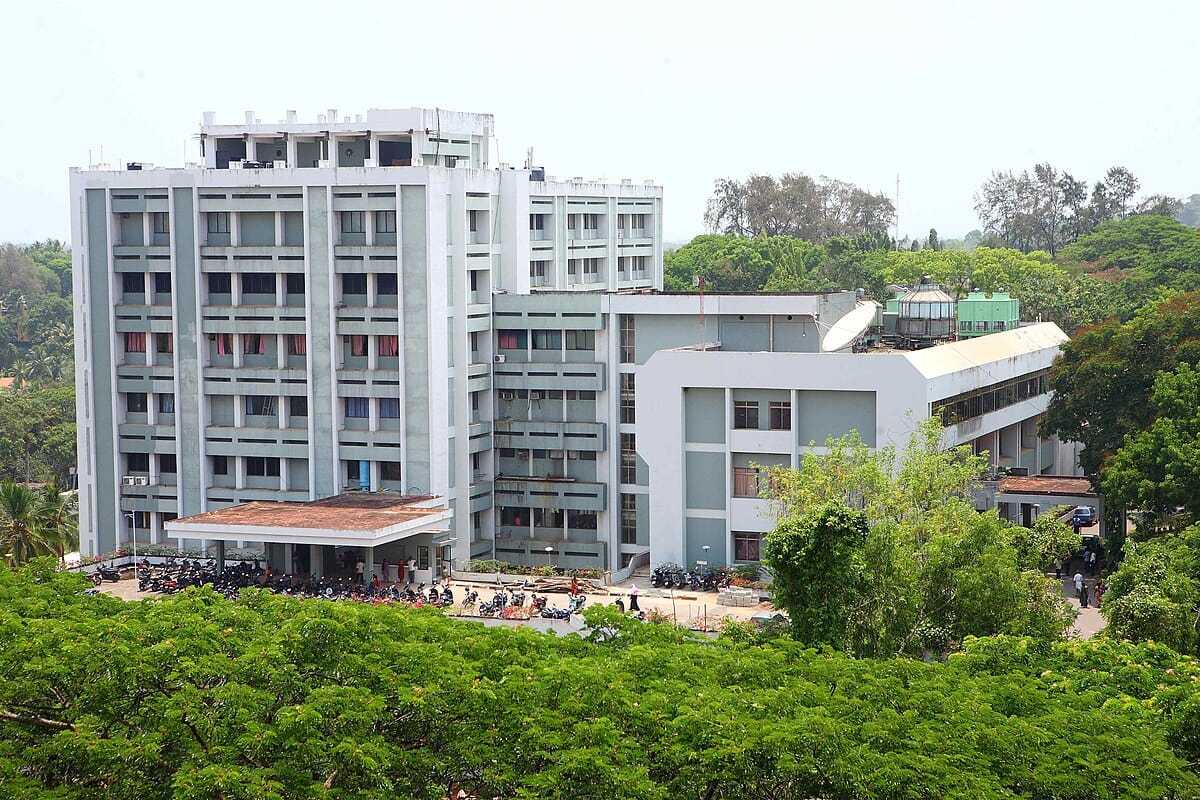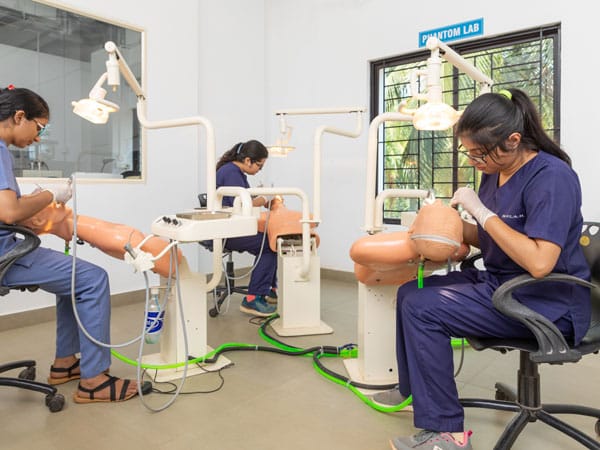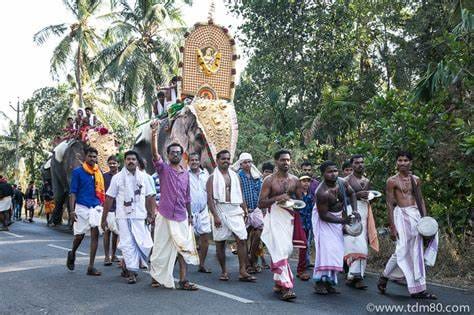Cancer in Kerala
Kerala's health paradox—high human development indices alongside alarming rates of cancer and lifestyle diseases—presents both challenges and opportunities. The state's healthcare infrastructure provide a strong foundation.

Cancer and Lifestyle Diseases in Kerala: Understanding the Crisis and Pathways to Prevention
Kerala, despite its remarkable achievements in human development and healthcare infrastructure, faces an alarming public health crisis. The state, which leads India in literacy rates and life expectancy, paradoxically records some of the highest cancer incidence rates in the country. This comprehensive analysis examines the multifaceted challenges of cancer prevalence, lifestyle diseases, and the urgent need for behavioral interventions among Malayalees.
The Alarming Cancer Statistics
Kerala's cancer burden has reached crisis proportions, with statistics that demand immediate attention and action. The data reveals a concerning upward trajectory that positions the state at the forefront of India's cancer challenge.
Current Incidence Rates
Age-adjusted incidence rates increased from 121.7 per 100,000 men to 137.8 in Thiruvananthapuram from 2006-2008 to 2012-2016 period. More recent data shows an even more dramatic escalation: in 2022, it rose to 169 per lakh of population. Further, the count of new patients at Thiruvananthapuram Regional Cancer Centre went to 15,324 in 2022-23 from 11,191 in 2020-21.
Comparative Analysis
Cancer incidence (CR) in Trivandrum was the highest in both genders in India (except Aizwal). This is mainly due to the highest life-expectancy in Kerala. Also, an epidemiologic transition in cancer pattern is taking place and is changing to more similar to "western" jurisdictions.
Registry Data and Trends
Between 2010 and 2019, 38,836 patients were registered at major cancer centers, indicating the substantial patient load and the growing demand for cancer care services in the state.
Understanding the Causes: A Complex Web of Factors
The high cancer incidence in Kerala cannot be attributed to a single cause but results from a complex interplay of demographic, lifestyle, environmental, and genetic factors.
Demographic Transition
Kerala's demographic advantage—high life expectancy and an aging population—paradoxically contributes to higher cancer rates. As people live longer, they become more susceptible to age-related cancers. The state's demographic dividend, which brought prosperity and development, now presents unique health challenges.
Environmental Factors
- Chemical exposure: Agricultural practices involving pesticides and fertilizers
- Industrial pollution: Coastal industrial activities and their environmental impact
- Water contamination: Quality concerns in certain regions
- Air quality: Urban pollution and its carcinogenic effects
Lifestyle and Behavioral Factors
The modernization of Kerala society has brought significant lifestyle changes that contribute to cancer risk:
- Dietary transitions: Movement from traditional to processed foods
- Sedentary behavior: Reduced physical activity levels
- Substance use: Tobacco and alcohol consumption patterns
- Stress factors: Modern life pressures and mental health impacts
Food Habits and Dietary Patterns of Malayalees
Traditional Malayali cuisine, while rich in flavor and cultural significance, has undergone significant transformations that impact health outcomes.
Traditional Diet Advantages
- Coconut-based preparations: Rich in medium-chain fatty acids
- Rice as staple: Providing energy and essential carbohydrates
- Fish and seafood: High-quality protein and omega-3 fatty acids
- Spices and herbs: Natural antioxidants and anti-inflammatory compounds
- Vegetables and fruits: Traditional varieties rich in micronutrients
Modern Dietary Concerns
The increasing consumption of processed foods, high-calorie diets, and sugary beverages contributes to obesity and related conditions like diabetes and cardiovascular diseases.
Problematic Trends
- Processed food consumption: Increased reliance on packaged and fast foods
- Sugar and refined carbohydrates: Higher intake of sweetened beverages and snacks
- Trans fats: Consumption of commercially prepared fried foods
- Portion size inflation: Larger meal portions becoming normalized
- Irregular eating patterns: Skipping meals and late-night eating
Impact of Food Habits on Cancer Risk
- Preservatives and additives: Potential carcinogenic compounds in processed foods
- Cooking methods: High-temperature cooking and reused oils
- Reduced fiber intake: Lower consumption of whole grains and fresh vegetables
- Excessive salt consumption: Contributing to hypertension and related complications
Major Cancer Centers in Kerala
Kerala has developed a comprehensive network of cancer care facilities to address the growing burden of cancer patients.
Regional Cancer Centre (RCC), Thiruvananthapuram
Regional Cancer Centre, Thiruvananthapuram (RCC) Established in 1981, is an autonomous institution sponsored jointly by the Government of Kerala and the Government of India. The Regional Cancer Centre (RCC), Thiruvananthapuram is an internationally recognised centre providing state-of-the-art facilities for cancer diagnosis, treatment, palliation and rehabilitation and conducting a wide range of research on various type of cancers.
Services Offered
With a multidisciplinary team of oncologists, surgeons, and support staff, RCC offers advanced treatments such as radiation therapy, chemotherapy, surgical oncology, and palliative care. The hospital has cutting-edge technology, including the CyberKnife robotic radiosurgery system.
Malabar Cancer Centre, Thalassery
Malabar Cancer Centre – Post Graduate Institute of Oncology Sciences & Research, Thalassery is an autonomous institution under Health and Family Welfare Department, Government of Kerala, established under Societies Registration Act.
Private Sector Cancer Centers
KIMSHEALTH Cancer Care: KIMSHEALTH Cancer Care Trivandrum offers medical Oncology, Radiation Oncology, Surgical Oncology, Neuro-Oncology, Gynec Oncology, Hemato Oncology, Paediatric Oncology, etc.
MVR Cancer Centre: MVR Cancer Centre and Research Institute (MVRCCRI) has been established to provide the most advanced cancer care at an affordable cost.
Treatment Modalities and Advanced Care
Kerala's cancer centers offer comprehensive treatment options utilizing the latest medical technologies and evidence-based protocols.
Primary Treatment Modalities
Surgical Oncology: Advanced surgical techniques including minimally invasive procedures, robotic surgery, and specialized cancer surgeries.
Radiation Therapy: Department of Radiation Oncology at Regional Cancer Centre (RCC), Thiruvananthapuram deals with primary care of majority of solid tumours such as head and neck, breast, central nervous system, lung, gastrointestinal, gynaecologic and urologic tumours.
Medical Oncology: Comprehensive chemotherapy, targeted therapy, and immunotherapy services.
Specialized Services
- Pediatric Oncology: Dedicated care for childhood cancers
- Hematologic Malignancies: Treatment for blood cancers
- Neuro-Oncology: Specialized care for brain and nervous system cancers
- Gynecologic Oncology: Women's cancer care specialists
Palliative Care: Compassionate End-of-Life Support
Kerala has been a pioneer in palliative care services in India, recognizing the importance of quality of life for advanced cancer patients.
Palliative Care Infrastructure
Providing a palliative care service for advanced cancer patients is a key mandate of major cancer centers.
Community-Based Palliative Care
- Home-based care programs: Bringing comfort care to patients' homes
- Pain and symptom management: Comprehensive symptom relief protocols
- Psychosocial support: Mental health and counseling services
- Family support programs: Training and support for caregivers
- Volunteer networks: Community involvement in palliative care delivery
Integration with Healthcare System
- Primary healthcare integration: Palliative care training for general practitioners
- Specialist consultation networks: Remote consultation capabilities
- Medication accessibility: Ensuring availability of pain management medications
- Quality standards: Standardized protocols for palliative care delivery
Government Support and Healthcare Policies
The Kerala government has implemented comprehensive support systems for cancer care and prevention.
Treatment Support Programs
Free cancer treatment in Kerala includes chemotherapy, radiation therapy, surgery, and supportive care such as medications and counselling.
Policy Initiatives
- Early detection programs: Population-based screening initiatives
- Treatment subsidies: Financial support for cancer treatment
- Research funding: Investment in cancer research and development
- Infrastructure development: Expansion of cancer care facilities
- Prevention programs: Public health campaigns and education
Insurance and Financial Support
- Comprehensive health insurance: Coverage for cancer treatment costs
- Government schemes: Specific programs for economically disadvantaged patients
- Corporate social responsibility: Private sector involvement in cancer care funding
- International collaboration: Partnerships for advanced treatment options
Lifestyle Diseases: The Broader Health Crisis
Cancer is part of a larger epidemic of lifestyle diseases affecting Kerala's population.
Diabetes Epidemic
India currently has more than 74.2 million people with Type 2 Diabetes Mellitus (T2DM). This is predicted to increase to 124.9 million by 2045. Kerala contributes significantly to this burden.
Cardiovascular Disease
In Kerala, the prevalence of lifestyle diseases like diabetes, heart disease, high blood pressure and obesity is high and it result in very high mortality and morbidity from malignant heart disease. In Kerala mortality rates for CAD (coronary artery disease), per 100,000 are 382 for men.
Risk Factor Prevalence
Majority of the participants had more than one NCD risk factor. There was no rural-urban difference in terms of raised BP or raised FBG prevalence in Kerala.
Behavioral Improvements for Disease Prevention
Addressing Kerala's health crisis requires comprehensive behavioral changes at individual and community levels.
Dietary Modifications
Returning to Traditional Wisdom
- Increase whole grains: Replace refined rice with brown rice and mixed grains
- Embrace seasonal eating: Consume locally available, seasonal fruits and vegetables
- Reduce processed foods: Minimize packaged and fast food consumption
- Control portion sizes: Practice mindful eating and appropriate serving sizes
- Limit sugar intake: Reduce sweetened beverages and desserts
Practical Dietary Changes
- Meal timing: Eat dinner at least 3 hours before bedtime
- Hydration: Increase water intake and reduce sugary drinks
- Cooking methods: Use steaming, boiling, and minimal oil cooking
- Fiber intake: Include more vegetables, fruits, and legumes
- Healthy fats: Choose coconut oil, olive oil, and nuts over trans fats
Exercise and Physical Activity
Kerala's sedentary lifestyle epidemic requires immediate intervention through structured physical activity programs.
Addressing Sedentary Behavior
- Daily walking: Minimum 30 minutes of brisk walking
- Traditional exercises: Incorporate yoga, martial arts, and dance
- Occupational activity: Take breaks from desk work every hour
- Recreational sports: Encourage community sports participation
- Active transportation: Walking and cycling for short distances
Structured Exercise Programs
- Cardiovascular training: Swimming, cycling, and aerobic exercises
- Strength training: Resistance exercises for muscle maintenance
- Flexibility and balance: Yoga and stretching routines
- Group activities: Community-based fitness programs
- Age-appropriate exercises: Tailored programs for different life stages
Addressing Substance Use
Kerala faces significant challenges with alcohol consumption and tobacco use, requiring comprehensive intervention strategies.
Alcohol Consumption Patterns
Irrational use of alcohol leads to liver damage, hyperlipidaemia, overweight/ obesity, diabetes, hypertension etc.
Intervention Strategies
- Education programs: Awareness about alcohol-related health risks
- Support groups: Community-based addiction recovery programs
- Policy measures: Regulation of alcohol availability and marketing
- Alternative recreation: Promoting healthy social activities
- Treatment access: Accessible addiction treatment services
Sleep and Stress Management
Modern lifestyle has significantly impacted sleep patterns and stress levels among Malayalees.
Sleep Hygiene Improvements
- Regular sleep schedule: Consistent bedtime and wake-up times
- Sleep environment: Dark, quiet, and comfortable sleeping conditions
- Screen time reduction: Limiting electronic device use before bedtime
- Relaxation techniques: Meditation and breathing exercises
- Late dinner avoidance: Eating meals earlier in the evening
Stress Reduction Strategies
- Mindfulness practices: Regular meditation and mindfulness exercises
- Social connections: Maintaining strong family and community bonds
- Work-life balance: Managing professional and personal responsibilities
- Hobby cultivation: Engaging in creative and recreational activities
- Professional help: Accessing mental health services when needed
Preventing Specific Diseases
Obesity Prevention
Kerala's increasing obesity rates require targeted interventions addressing multiple factors contributing to weight gain.
Childhood Obesity Prevention
- School nutrition programs: Healthy meal options in educational institutions
- Physical education: Mandatory sports and exercise in curricula
- Family education: Teaching parents about childhood nutrition
- Screen time limits: Reducing sedentary entertainment activities
- Community playgrounds: Safe spaces for physical activity
Adult Obesity Management
- Workplace wellness: Corporate health programs and facilities
- Community support groups: Weight management and healthy lifestyle groups
- Medical supervision: Professional guidance for significant weight loss
- Sustainable lifestyle changes: Long-term behavioral modifications
- Environmental changes: Creating supportive environments for healthy choices
Diabetes Prevention
Given Kerala's high diabetes risk, prevention strategies must be comprehensive and culturally appropriate.
Primary Prevention
- Dietary counseling: Personalized nutrition guidance
- Regular screening: Early detection of prediabetes
- Physical activity promotion: Community-based exercise programs
- Weight management: Maintaining healthy body weight
- Stress reduction: Managing psychological factors
Secondary Prevention
- Blood sugar monitoring: Regular health check-ups
- Medication compliance: Proper diabetes management
- Complication prevention: Foot care, eye examinations, and kidney function monitoring
- Lifestyle counseling: Ongoing support for behavior change
- Family involvement: Engaging family members in diabetes care
Heart Disease Prevention
Cardiovascular disease prevention requires addressing multiple risk factors simultaneously.
Risk Factor Management
- Blood pressure control: Regular monitoring and management
- Cholesterol management: Dietary and medical interventions
- Smoking cessation: Comprehensive tobacco control programs
- Physical activity: Regular aerobic and strength training
- Stress management: Techniques for managing work and life stress
Community Interventions
- Heart-healthy environments: Creating supportive community infrastructure
- Public education: Awareness campaigns about heart disease prevention
- Policy changes: Regulations supporting heart-healthy behaviors
- Healthcare access: Ensuring availability of preventive cardiovascular care
- Emergency response: Training communities in basic life support
Government and Community Initiatives
Public Health Programs
The Kerala government has initiated several programs to address lifestyle diseases and cancer prevention.
Prevention Initiatives
This initiative in Kerala, India, aims to combat diabetes through a health education system. It involves creating an online health education centre, implementing a health education system in schools, running a multimedia campaign, and providing online education to IT professionals.
Health Education Systems
- School-based programs: Integrating health education into academic curricula
- Community outreach: Door-to-door health education campaigns
- Digital platforms: Online resources and mobile applications
- Workplace wellness: Corporate health promotion programs
- Media campaigns: Television, radio, and print media health messaging
Healthcare System Strengthening
- Primary care enhancement: Strengthening community health centers
- Specialist training: Developing expertise in lifestyle disease management
- Technology integration: Telemedicine and digital health solutions
- Quality improvement: Standardizing care protocols and outcomes measurement
- Research and development: Supporting local health research initiatives
Future Outlook and Recommendations
Short-term Goals (1-2 years)
- Immediate lifestyle interventions: Focus on diet and exercise modifications
- Enhanced screening programs: Early detection of cancer and lifestyle diseases
- Community mobilization: Engaging local leaders and organizations
- Healthcare provider training: Updating clinical skills and knowledge
- Policy implementation: Enforcing existing health regulations
Medium-term Objectives (3-5 years)
- Infrastructure development: Expanding healthcare facilities and services
- Behavioral change sustainability: Long-term lifestyle modification programs
- Technology adoption: Implementing digital health solutions
- Research expansion: Developing local evidence base for interventions
- Inter-sectoral collaboration: Coordinating health, education, and urban planning
Long-term Vision (5-10 years)
- Population health transformation: Achieving measurable improvements in health outcomes
- Cultural change: Establishing healthy behaviors as social norms
- Healthcare system excellence: Becoming a model for integrated health services
- Research leadership: Contributing to global knowledge on lifestyle disease prevention
- Sustainable development: Balancing economic growth with health outcomes
Conclusion
Kerala's health paradox—high human development indices alongside alarming rates of cancer and lifestyle diseases—presents both challenges and opportunities. The state's educational achievements, healthcare infrastructure, and social capital provide a strong foundation for addressing these health challenges effectively.
The path forward requires a comprehensive approach combining individual behavior change, community mobilization, healthcare system strengthening, and policy interventions. Success will depend on Kerala's ability to adapt its traditional wisdom to modern health challenges while leveraging its educational and institutional advantages.
The transformation needed is not merely medical but cultural, requiring Malayalees to reconsider their relationship with food, physical activity, stress, and overall lifestyle choices. The state's historical success in social development suggests that with proper commitment and coordination, Kerala can once again lead India—this time in demonstrating how to prevent and manage lifestyle diseases while maintaining quality of life.
The urgency of this health crisis cannot be overstated. The data is alarming, and the government is taking many steps for early diagnosis and correct treatment. However, prevention remains more cost-effective and sustainable than treatment alone. Kerala's future health outcomes will depend on the collective commitment of individuals, communities, healthcare providers, and policymakers to implement comprehensive prevention strategies.
By addressing the root causes of lifestyle diseases—sedentary behavior, poor dietary choices, substance abuse, stress, and environmental factors—Kerala can work toward reversing current trends and creating a healthier future for its population. The state's experience will likely provide valuable lessons for other regions facing similar epidemiologic transitions, making Kerala's health transformation efforts globally significant.
The time for action is now. Every day of delay in implementing comprehensive prevention strategies results in more preventable cases of cancer, diabetes, heart disease, and other lifestyle-related conditions. Kerala has the knowledge, resources, and social infrastructure to address this crisis effectively—what remains is the collective will to prioritize health in all aspects of life and policy.



